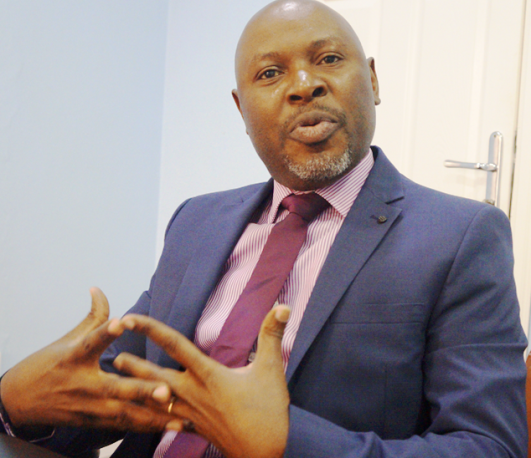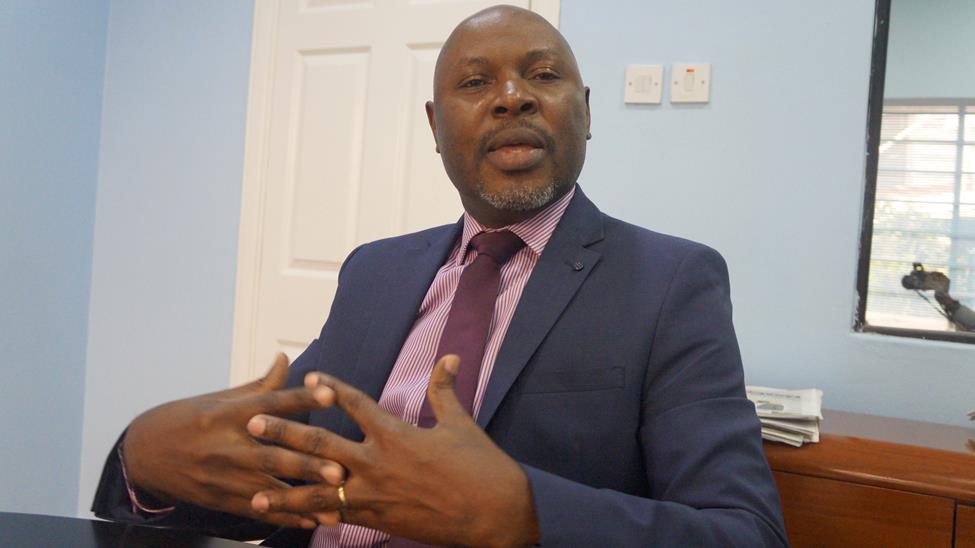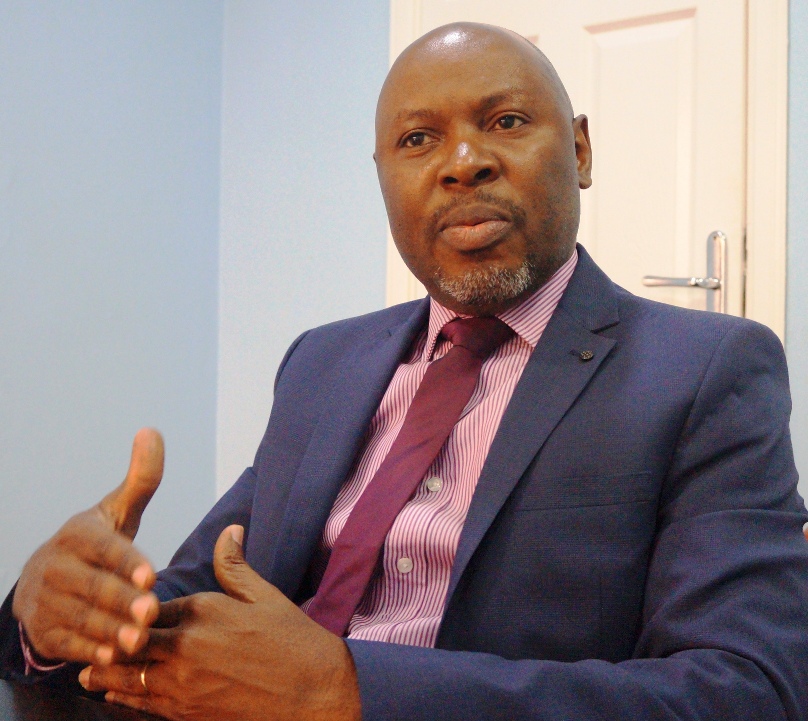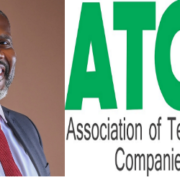Executive Director of PPC Systems Integrator, Mr. Ayo Grillo speaks with IT Edge News, Oluwatobi Opusunju and Chinedu James on how the Lagos based company is taming challenges and engaging the market. With over 20 years track record in delivering turnkey solutions across five sectors: telecoms, health, engineering, power and transport, Grillo speaks on how to make the power sector works, why the telecom sector remains attractive, why healthcare is still in coma, and why government must inject willpower and fund to rework Africa’s largest economy of over 194 million people.
Your background is finance. Tell us about the intricacies of your job as an executive director in a company like PPC with a strong grip in sectors that include telecommunications, power, health, transport and engineering?
Basically, PPC Systems Integrator has five divisions and a number of subsidiaries. My portfolio as the Executive Director is to grow the business through developmental strategies across the five divisions and the subsidiaries. I provide solutions to questions like: how do we grow the business? What services or products do we need to bring to the marketplace? What technical partners do we need to work with because obviously Nigerian does not develop technology; we get technology from somewhere and use. So we need to have strong technical partners. So my role is to ensure those departments responsible for that actually bring in the technical partners and we work very closely with them. Also, within PPC we have what we call the central services which include HR, finance, procurement, ordering team and then the business proposals unit; this unit prepares all the tender documents and ensures that PPC is in a position to win. So these are all the areas that I manage.
“Politicians need to understand that for business entities, time means money. If you are debating a power agreement contract and it is taking five, six, seven months, it’s a waste of time and people will switch off and move on to other profitable activities.”
In addition to that, we have a few divisions that I oversee for example Healthcare. However, the essence is that we see significant value in these units and we use them as a lever to drive the business. PPC has been growing for the past few years and we just came up with a 3-year strategy. The essence of the strategy is to develop those divisions that we are currently working in. We have a plan to grow significantly in the next few years and that is my portfolio. So my role is to ensure that we have the people within the business that can drive that growth as well as the resources to be able to fuel that growth and deliver sustainable products and services. In essence, my role is to bring all those together and bring about transformation to PPC.
Also in the finance part, I ensure that we meet the audit deadline and with the way we work, I am responsible for performance. Each months we have our monthly performance review meeting which we call MPR, So I oversee that and ensure that all the divisions are able to track their performance as well as the support services to ensure that they are able to provide the required supports to these divisions to meet their targets. It’s all about performance management to meet the target that we set and ensure that PPC continues to grow and we continue to be relevant across the various industries we operate in.
To what extent has the advancement in technology impacted on financial management of companies like yours and how do you see technology impacting further in terms of financial and corporate governance for PPC?
Technology has made significant impact. I mean in the 80s, 90s everything was largely manual and processes take forever but now it is automated.so people from different locations can have access to information, make decisions on time and smartly. You don’t really need to employ too many people and at the same time you are developing new skills, new competencies because everybody is IT literate now. You can’t be an accountant or finance person without being an IT savvy and the infrastructure we have now even across the business have been IT enabled right from the time we procure or recruit. So yes, that is the value it adds. But, what we will be looking at eventually is a seamless process whereby you are linking all the systems of both your suppliers and end users, so it won’t be about PPC alone. We have what we call a ‘just in time process’ whereby you can use IT to link up with your clients or supplier so that they are providing information, products, materials as you need them and we don’t have to keep storing loads of items in the various warehouses that we have across the country. There are ways we are actually reducing cost. We are not there yet but it is something that could be done to ensure that the value chain is completely optimized.
And I think it will help, if the country starts developing technology and not importing. For me, we have the numbers in terms of population and it is just for us to build capacity and then we can start exporting services to other countries. We shouldn’t just be a recipient of obsolete technologies that are imported into the country. I see that potential because we have the numbers, we just need to develop our curriculum in the schools to ensure that our people have the requisite skill sets and knowledge to deliver these services and then the country can develop.
“Investment in a lot of sectors in the country, not just the telecoms sector has been low. The reason … is basically structural. Lack of consistency in policies prevents foreign direct investments (FDIs). For example, if you come up with a pronouncement today and tomorrow you reverse it, what you would have succeeded in doing is frustrate investment opportunities.”
Despite the growing trend and impact of Financial Technologies (FinTechs) to finance, the sector is still faced with a lot of regulatory hurdles. How can government help create an enabling environment for FinTechs?
Yes, regulatory impediments quite abound in almost all the sectors, no doubt about that. I think the way it is being done in other developed countries is that the government works with the private sector so they can have a clear understanding of the challenges in the sector. When the government only makes its policies without the input of stakeholders, it ends up not benefiting anybody at the end of the day. There are so many hurdles within all sectors, but if there is a strong partnership between the government and private sector, then these issues can be resolved. Because if you have different goals, the way you look at things will be different. But when you have uniformity of purpose, it will ensure that most of these bottlenecks will be resolved.
Financial Technology (Fintechs) have done a significant value add within the financial sector, there is no doubt about this in terms of ease of processes, transactions, being able to get information and access to funds. But at the same time the government has to do more to enable that environment to bring in much more companies into the fold.

Grillo: “Low cost technology can provide … accessible healthcare to people either at home or at the primary health centres through cheap medical devices. So these are some of the priorities the government needs to look at.”
Nigeria still struggles with provision of basic health services for her huge population in spite of advancement in technology. Per capita health spending is very low. How can we alter this narrative for good?
Technology has a great role to play in the health sector and there is no doubt about it. Unfortunately, there is still a gap between the government views on healthcare provisions and private sector’s view on this. Because Nigeria is not predominantly a manufacturing country, everything whether its equipment, software and even sometimes the skills are all imported and that is quite expensive looking at the current exchange rate; the resources available to the government has reduced significantly while the cost of imported goods has gone up drastically. So looking at the current situation, there is not a lot the government can do. But then technology can play a role. Low cost technology can provide some of these facilities and functions to provide accessible healthcare to people either at home or at the primary health centres through cheap medical devices. So these are some of the priorities the government needs to look at. Yes, it is good to spend money on huge expensive equipment for diagnosis centers but if the primary healthcare provision is lacking then it becomes a challenge. So, the government needs to focus on primary healthcare provision and try to modernize it for the effective provision of accessible healthcare. Government needs to deploy a range of IT facilities to make sure that services are provided.
A lot of thinking still needs to go hand in hand with the private sector for the public sector to get it right. We are currently still far away from there, which is why there is a huge gap in terms of affordable provision because people still have to pay from their pockets which shouldn’t be. There is an insurance system that should apply that people can pay for healthcare but if it’s not even available in the first instance, it becomes a big problem and a huge gap.
You see healthcare provision is about priority at the end of the day, if you look at the MDGs, you will notice that we failed at it, because there wasn’t really that priority given to healthcare provision. The truth of the matter is even if you have a little amount of money, you can make the money work for you; it has to be judiciously and effectively used to eliminate wastage in the way the funds are utilized. For example, look at an MRI which costs at least $1 million, it will be able to treat a number of people, but how many people will be able to use it. But then you can buy a cheap ultra sound equipment which will probably costs about 8 or 10 thousand dollars. That is, if you buy about 80 ultra sounds, you can take it to 80 different communities and you can get a significant impact as opposed to just buying one MRI. So at the end, it’s just about making the best of the little money that you have. But that is not happening and I don’t believe we are there yet; we still have a long way to go in terms of making the best of what we have.
“We shouldn’t just be a recipient of obsolete technologies that are imported into the country. I see that potential because we have the numbers, we just need to develop our curriculum in the schools to ensure that our people have the requisite skill sets and knowledge to deliver these services and then the country can develop.”
What do you think is required in terms finances to rescue the power sector from its present state of emergency?
Finance is one of the issues, but I am not certain that it is the major issue. I believe that the major issue is that there needs to be a clear strategy of what you want from the power sector. Because what happened is that we unbundled the old NEPA and set up the distribution companies (DisCos), the transmission companies and the generation companies (GenCos) without a well carried out feasibility study as well as due diligence in terms of what assets these companies had or if the prices that was paid was actually adequate. So you have all these dead assets and then you have this huge value placed on these dead assets. Therefore, if you are going to provide a service from these dead assets, the price will be very expensive. So when someone is saying, no you can’t provide this service at this particular price, there is going to be a deadlock and that is what we currently have now.
So the DisCos do not see why they should provide power at a certain level or why they should do all it takes and even engage in more investments to provide power at a certain price, because at the end of the day, it is not going to make any business sense for them to make money. So whatever decisions they make must add value to their bottom line. And the government cannot insist that they provide these range of services at a particular price, no they wouldn’t, unless the government intervenes. So there has been a mistake right from the outset and I think that mistake has to be resolved somehow.
“Government needs to streamline the legislation behind the power sector …. If you want to get your licenses to generate power or get the licenses to get your meters accepted by the Nigerian Electricity Regulatory Commission (NERC) it takes forever. There are just so many bottlenecks that make it very unattractive even to foreign investors.”
In the first place, the way such transfers are done is that you get a complete list of all the assets and value them, and then you give a valuation to the company. But here the transfer was done in an opaque fashion whereby the sense of the condition, relevance and even compatibility of those assets was not well considered. So, that is the problem we are dealing with now, because we have overvalued assets that are completely useless and the investors have to provide service to a range or a particular geography. To provide those services, they need to invest more. But the banks are saying, you have all these assets that are valued at this price so use them and they can’t because they are useless. So raising money to provide good services is the problem which is why the power station has not improved significantly.
So the government has to make some contributions to the private sector as a commitment to seeing the power sector improving. It is imperative that the government inject some money into the private sector, because the private sector is not in the position to inject further funds; they do not have it. Except they wait and generate some money for themselves, and then on an incremental basis improve their infrastructure. But, that will take a very long time. So the best thing to do is just for the government to inject some money into the sector.
Then also the government needs to streamline the legislation behind the power sector for private sector organizations who actually want to play within the power sector. The whole legislative process is very unwitting and it takes too long. For example, if you want to get your licenses to generate power or get the licenses to get your meters accepted by the Nigerian Electricity Regulatory Commission (NERC) it takes forever. So there are just so many bottlenecks that make it very unattractive even to foreign investors and these are some of the challenges. The processes has to be streamlined, it shouldn’t take long to register anything that you want to register and then the politicians need to understand that for business entities, time means money. If you are debating a power agreement contract and it is taking five, six, seven months, it’s a waste of time and people will switch off and move on to other profitable activities. So it is a huge challenge. The power sector by its notion is an attractive sector to be in because you are providing essential services. But, because of the intrigues within the sector it makes it difficult for people to take part in it; it is a very complex situation but we are hoping that the government will at least reduce some of the complexities and make companies thrive.

Grillo: “The telecoms industry is still an attractive industry in itself and it drives so many other industries, it’s just that there are so many external factors that are impacting on its ability to perform.”
Foreign Direct Investment into Nigeria’s telecommunications industry has continued to dwindle – the sector recorded its lowest third quarter investment in the past three years in 2017. What is responsible for this? Is the environment still viable for investments?
I think investment in a lot of sectors in the country, not just the telecoms sector has been low. The reason for the reduction in investment however is basically a structural issue. You see, lack of consistency in policies prevents foreign direct investments (FDIs). For example, if you come up with a pronouncement today and tomorrow you reverse it, what you would have succeeded in doing is frustrate investment opportunities. People don’t like surprises particularly investors. And also because we don’t produce technology; we bring in the equipment, the software and even the skills, it becomes quite an expensive venture for investors to take on. These are some of the considerations that people take when making investment decisions abroad. As an investor you do not want to come in and bring in your dollars at the current rate and when you are leaving it’s twice that rate. At the same time, there are other countries that have the skills and the capacity where one can provide services seamlessly. So, it depends on how attractive foreign investors see a particular geography before they can go in.
So, for the past few years, there has not really been much happening. Yes, there was recession, then the country tried to come out of the recession and then the government has its own internal wrangling about budget approval. So there are quite a number of external factors responsible for the reduction in investment in the sector. But, the telecoms industry is still an attractive industry in itself and it drives so many other industries, it’s just that there are so many external factors that are impacting on its ability to perform.
And talking about if investment is still viable in the sector, look at broadband penetration for example, it is very low. So for me that is a wide space; that is an opportunity for someone to come and invest and provide the needed services that will accelerate it. Apart from just broadband, there are so many other investment opportunities across the sector. There is need for a range of m-services that are to be provided but are not being provided yet. So, there is huge opportunity here; the sector is really still very attractive.
When the government only makes its policies without the input of stakeholders, it ends up not benefiting anybody at the end of the day. There are so many hurdles within all sectors, but if there is a strong partnership between the government and private sector, then these issues can be resolved.”
As technology continues to advance and more FinTech startups emerge, what is your advice for them in the sector?
They need to understand the sector because they need to be quite clear of what they want to do, what services and products they want to provide in the sector and they need to be quite clear of who the competitors are in the sector. They also need to be aware of the pricing structure because you can have a business plan or a projection and say I want to deliver ABC, but if you don’t know who your competitors are and what price points they are offering those services, you will see that it is not going to work.
So a lot of due diligence needs to be done before you go into the sector. Most telecom products have a short shelf life, so you need to have a plan B and look at the shelf life of the products and services that you are going to provide; how long will they last? What do I do after that and what other services am I going to provide? So that needs to happen and in terms of the financing, ideally if you can raise the finance privately or from abroad because financing locally entails a lot with commercial banks—you are going into a venture and you are already spending 23 or 33 percent on servicing loans and that will be a major challenge. So all these needs to be put into consideration when starting up.
Also, you have to be passionate about what you want to do because if you don’t have passion for it, you might just be wasting your time and wouldn’t be able to last the test of time.





























